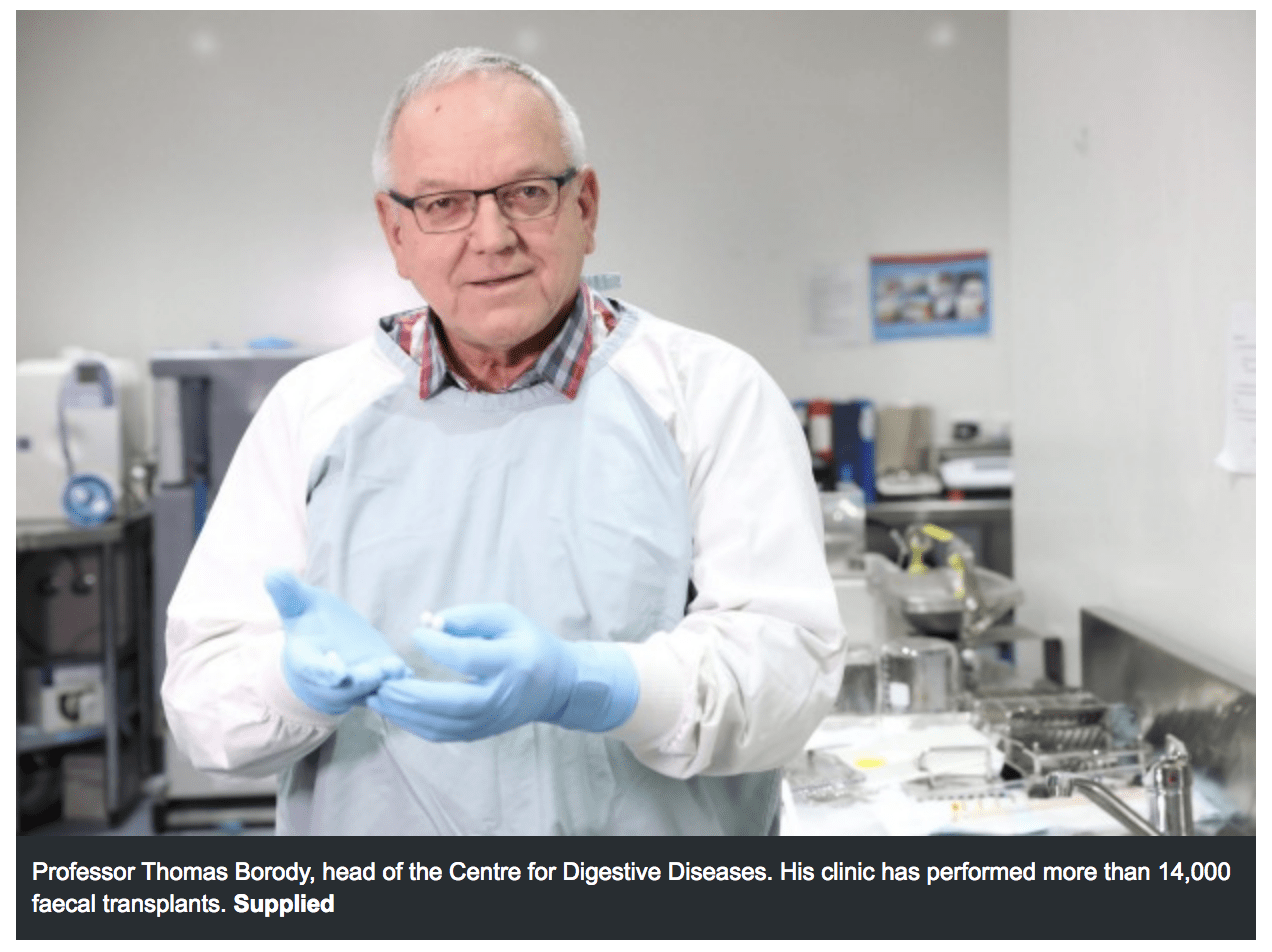Many years ago, when the work of Sydney gastroenterologist Professor Tom Borody was first reported in the media, readers were aghast. He was the first person to perform faecal transplants in Australia and his colleagues did not approve. Most had never heard of such a thing and couldn’t believe it was happening.
There is documented evidence of such transplants being used as therapy in China in the fourth century and they were known to be in use in the US as early as the 1950s.
Borody, now an adjunct professor at UTS in Sydney, conducted his first transplant in 1988 because he “had a patient in need”. He’d come across a paper, published in 1958, in which an antibiotic-associated inflammatory condition had responded to restoration of bowel flora. It was by a doctor who, he says, “with great vision, did four enema faecal transplants in Colorado”.
Borody decided to try it and it worked. Despite opposition, he persisted and the striking results he achieved with treating C. diff, and that have now been replicated by others, here and abroad, helped to drive this field of medicine forwards.
Borody, who since founded the Centre for Digestive Diseases in Sydney’s inner west, was way ahead of his time. He would tell people that “poo is a zoo” full of living animals and is itself a living organ. His clinic has performed more than 14,000 faecal transplants and about eight years ago he started the first “brown bank” in Australia to store healthy samples of faeces that are rich in good bacteria.
He has teams of selected donors who, for a fee, drop their stools off at his centre.

